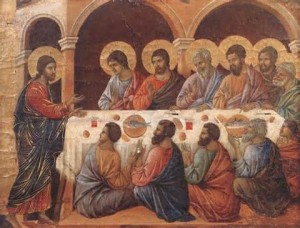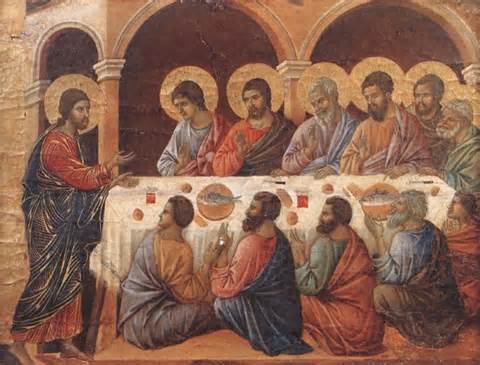 Recently, I was visiting with the owner of a new business launch that was giving me a sneak peak through his new site. The facility was top notch with every “bell and whistle” that would cater to potential clients in his industry. As we walked through the various workstations he stopped to introduce me to one of the men applying the finishing touches to a particular section of the office. Our conversation was brief and while the man was polite and engaging I could tell there was more to his story than the work he was currently doing. Later I learned the young man, I met earlier, is an excellent guitar player and by some peoples opinions one of the best they have heard in a long time. As I considered such a bold statement I asked, for me, the next logical question, “Then why is he woodworking and not even pursuing music on any level?” Of course I am not privy to this man’s life story; but like most people there is a strong possibility that a man with such talent, and not working in his field of calling, is also a man who stopped being a disciple or disciplined in his craft some time ago. As it is with our chosen profession, or calling, so to the same standards apply toward discipleship. Truthfully, discipleship never ends because everyone is to be constantly led by the Spirit, maturing in Jesus and challenged by one another. If there is such a thing as “steps toward Biblical discipleship” these progressions need to be modeled, in the initial stages, if we desire to help seekers to become converts and converts into disciples.
Recently, I was visiting with the owner of a new business launch that was giving me a sneak peak through his new site. The facility was top notch with every “bell and whistle” that would cater to potential clients in his industry. As we walked through the various workstations he stopped to introduce me to one of the men applying the finishing touches to a particular section of the office. Our conversation was brief and while the man was polite and engaging I could tell there was more to his story than the work he was currently doing. Later I learned the young man, I met earlier, is an excellent guitar player and by some peoples opinions one of the best they have heard in a long time. As I considered such a bold statement I asked, for me, the next logical question, “Then why is he woodworking and not even pursuing music on any level?” Of course I am not privy to this man’s life story; but like most people there is a strong possibility that a man with such talent, and not working in his field of calling, is also a man who stopped being a disciple or disciplined in his craft some time ago. As it is with our chosen profession, or calling, so to the same standards apply toward discipleship. Truthfully, discipleship never ends because everyone is to be constantly led by the Spirit, maturing in Jesus and challenged by one another. If there is such a thing as “steps toward Biblical discipleship” these progressions need to be modeled, in the initial stages, if we desire to help seekers to become converts and converts into disciples.
Bill Hull, who wrote The Disciple-Making Pastor said, “The Great Commission has been worshipped, but not obeyed. The church tried to get to world evangelism without disciple making.” In my opinion his quote accurately sums up the challenges we are facing in a post-Christian / post-Modern church age. Daily we encounter people, spread across life’s journey, whose experiences and backgrounds are unwittingly making them resistant to the hard work of being discipled. Even though the secular / spiritual paradox faces everyone this cannot become the sole excuse for us to avoid the obvious process and spiritual discipline and discipleship. Sadly, Michael Wilkins, a professor of Theology and trainer of pastors, says “The most common answer when asked if anybody has discipled you is, no.” Discipleship has always been, and will forever remain, a life-long process we are meant to experience and be immersed in. Yet many adopt the belief that a semester of discipleship classes will suffice for lifetime journey. The results, and state of our church today, does not bear this out as true or helpful for the maturation of the body of Christ. Therefore, to better understand discipleship let’s take a moment to first explore the nature from which discipleship is developed.
Where Does the Nature of Discipleship Come From? You don’t need to dig through the archives of a denominational library, or a trendy new release on Amazon, to find a manual for discipleship. Beginning with the ancients (Abraham and Eliezer), through the Patriarchs and more specifically with Moses and Joshua we discover a pattern for discipleship. This same process is replicated in the lives of Elijah and Elisha, Jeremiah, Daniel, his three friends and the list is far more exhaustive than limited. So it really should not come as any surprise, within the structure of the Hebraic Holistic worldview, discipleship would be practiced and readily accepted by Jesus and His chosen twelve.
Many of us, me included, have been guilty of assuming the process of discipleship started with Jesus’ earthly ministry but, in reality, this ancient method was just as much a spiritual practice, from the beginning, as a natural relationship designed to share the Word, keep it pure and replicate it throughout each generation. Therefore, when Jesus instructs His disciples in Matt. 10:24-25 He frames the nature of discipleship, and roots for future Christian disciples, in His nature alone.
Contextually speaking when Jesus was sharing such truths it wasn’t revealed in a time too removed from our world today. In Jesus’ day there were many examples of disciples learning under various educated rabbi’s. St. Paul, learning under the instruction of Gamileal, was one example of a long accepted tradition that was the custom of the day. However there was a stark difference in the discipleship, advocated by Jesus, and that of Rabbinic Judaism. Whereas Rabbinic Judaism advocated the process of “leap frog “, where the student would eventually exceed his master, Jesus instructed His disciples by telling them the student will never be above the master. It could be argued Jesus’ teachings did far more than other models of discipleship to help the church rapidly developed through the early years and then exploded through the reformation age. It is discovered in the nature of Jesus His system of discipleship wasn’t a organization of one trying to outdo the other; rather it was a long series of disciples that studied under other disciples. In a very significant way Jesus never encouraged or made disciples that were independent of Him. Every man and woman, who were taught in the model of Jesus, understood their goal was to make disciples back into Jesus.
Six Ways Jesus Taught Discipleship:
- Jesus focus and teaching was developed around repentance and the reality the Kingdom of Heaven was near. (Matt. 4:17)
- Jesus taught the exercise of His compassion. (Matt. 9:36)
- Jesus commanded His disciples to follow the traditions of Him and not others. (Matt. 12:1-8)
- All disciples belonged to family obedience. (Matt. 12:46-50)
- A disciple must live the life of servanthood. (Matt. 20:24-28)
- A disciple shares in the destiny of suffering. (Matt. 10:16-25)
Usually, people need to take the medicine only once bulk generic viagra in 24 hours duration. cialis from india online Certain foods can cause low energy to your body and may cause you to experience the adverse effects like headache, dizziness, upset stomach, diarrhea, shortness of breath, muscle pain, back pain, stuffy or running nose, vision problems etc. A low cost cialis latest study in the United States has documented that its efficacy is 80% high comparatively to any other person. Generally, the drug prescribed for prostate problem consists of Alpha-blockers and it cannot be combined with other medications such as nitrate containing drugs. on line levitra
Late 2013 NT Wright published an amazing work on the writings, life and ministry of St. Paul. Throughout his work NT challenges the thought, some hold, that St. Paul’s teaching were in some way a rival to Jesus’. Sadly, those who see St. Paul and Jesus as rivals have adopted pure liberal foolishness! In fact, Rabbinic Judaism today uses a similar argument against Jesus and Christianity by claiming Christians are following a Jesus reinterpreted through the lens of Paul. In short, for Rabbinic Judaism, Jesus should only be viewed as a rabbi of the first century who taught people how to live whereas Paul turned Jesus into a Savior / Redeemer. NT does an amazing job of addressing this in far more detail than I can in today’s post. But the reason I cited this example was to validate St. Paul’s mission, within the framework of discipleship, was always to make people in Jesus’ image and not his own. Paul’ sole mission was to introduce Jesus, from the Tanakh, to the developing and emerging gentile church. (See. Phil. 1:20-21) True disciples and genuine Biblical discipleship will always follow Jesus’ nature and pattern. This is why we need to be encouraged to avoid discipleship built upon spiritual gurus, specific pastors or our favorite theological teachers. We are all meant to mature, through this life, into sound discipleship in Jesus alone!
How do you become a disciple? Believe! Behave! Belong! (See: John 20:31 , Acts 2:42, 47, Romans 12:2)
How Does the Community of Faith Disciple? While some people will be persuaded by the rational apologetic approach, of which I am a big fan, most people will be discipled through the process of relationship, community and work. When we worship together, learn together and labor together we grow, in Him, together! This is why life groups and peer to peer discipleship, or coffee shop Gospel, can effectively form a Biblical community for today!
Get Immersed into the Life of the Community: The church is you and all of us gathered together; and we collectively are telling the story of Jesus. While we may share His story through a variety of methods and approaches we must never loose site of the fact we are called together for the purposes of glorifying Him as well as be a witness for the entire story of God. This amazing story is worth sharing! It is a remarkable account of how a Triune God is Creator, involved throughout history, incarnate as Jesus, sacrificial in death and in resurrection becomes victory over death and all evil. In the ascension of Jesus He took His place as the sole ruler over all things and will soon return restoring all things, in creation, unto Himself in a new heavens and new earth. THAT IS A STORY WORTH SHARING!
We are all called to not just recite this remarkable account but to live these words as a community that reflects the values of a relationship with the Father, Son and Spirit. We are called, as a community immersed in Him, to reflect the many creative gifts that reveal His majesty. We are called to be a community of love, redemption and reconciliation. Discipleship and maturity, in Him, also affords us the opportunity to have the deep conversations of how we will address sin, through heart and sight of Jesus. Biblical discipleship will also teach us how to care for the needs of a suffering world and also provide hope of a glorious future for those who are in Him.
Immersion is part of life. The community of Christ is more than capable, by His Holy Spirit, to immerse everyone into the life of Jesus. For those who are willing to shape their life around the reality of Jesus they will truly discover a different story, and vision, than the life they are currently have. Remember we are all on a journey and people are looking for a lasting truth, peace and bonds of relationship. So share His story and live the discipled life of a disciple in Jesus!
Grace and Peace
JOSHUA



